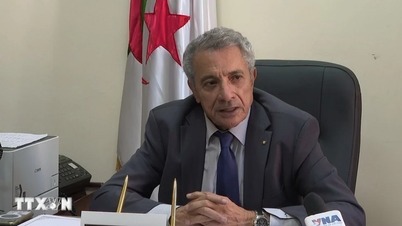
The Japanese yen continued to weaken, hitting its lowest since February 4 as the dollar was supported by declining market expectations that the US Federal Reserve will cut interest rates at its December meeting.
The dollar rose 0.1% to 155.29 yen, reflecting a rebound in the greenback after four straight sessions of losses. The move came ahead of the release of the US payrolls data for September, which has been delayed, scheduled for Thursday.
In response to the sharp decline in the yen, Japanese Finance Minister Satsuki Katayama said at a regular press conference: “We have recently witnessed rapid, one-sided fluctuations in the foreign exchange market, so we are very concerned.”
Her remarks reflect growing concerns about the impact on the Japanese economy of the weakening yen.
On the same day, Prime Minister Sanae Takaichi is scheduled to meet with Bank of Japan (BoJ) Governor Kazuo Ueda to discuss policy. Ms. Takaichi, who favors expansionary fiscal policy and large-scale public spending, has appointed many officials with the same views to maintain low interest rates, thereby putting pressure on the yen to depreciate.
According to the CME FedWatch tool, Fed funds futures now reflect a 43% probability that the Fed will cut interest rates by 25 basis points at its December 10 meeting, down from 62% a week ago and almost 100% a month ago.
The dollar index - which measures the greenback's strength against a basket of major currencies - edged up 0.02% to 99.553, ending a four-session losing streak, hitting a one-week high.
“In theory, if the Fed rate cut is delayed, it will only be a pause. The upcoming official data will play a decisive role, including accepting the weak labor indexes due to the impact on the supply side,” ING experts said.
Meanwhile, Fed officials continue to highlight risks to the labor market. Governor Christopher Waller said many US businesses have begun to consider cutting staff as demand weakens, while hoping to offset that with productivity gains from artificial intelligence applications. Fed Vice Chairman Philip Jefferson also said the labor market is "sluggish" as companies are cautious about hiring amid volatile economic policy.
In the bond market, the yield on 2-year US Treasury bonds fell 0.2 basis point to 3.6039%, while the yield on 10-year bonds edged up 0.6 basis point to 4.1366%.
EO fell 0.01% to $1.1591 - its lowest level in a week.
The British pound traded at $1.3151, down 0.04%.
The Australian dollar was flat, currently trading at $0.6495.
The New Zealand dollar fell 0.07% to $0.5655.
Source: https://thoibaonganhang.vn/sang-1811-ty-gia-trung-tam-tang-12-dong-173718.html




































![[Photo] General Secretary To Lam and National Assembly Chairman Tran Thanh Man attend the 80th Anniversary of the Traditional Day of the Vietnamese Inspection Sector](https://vphoto.vietnam.vn/thumb/1200x675/vietnam/resource/IMAGE/2025/11/17/1763356362984_a2-bnd-7940-3561-jpg.webp)











































































Comment (0)